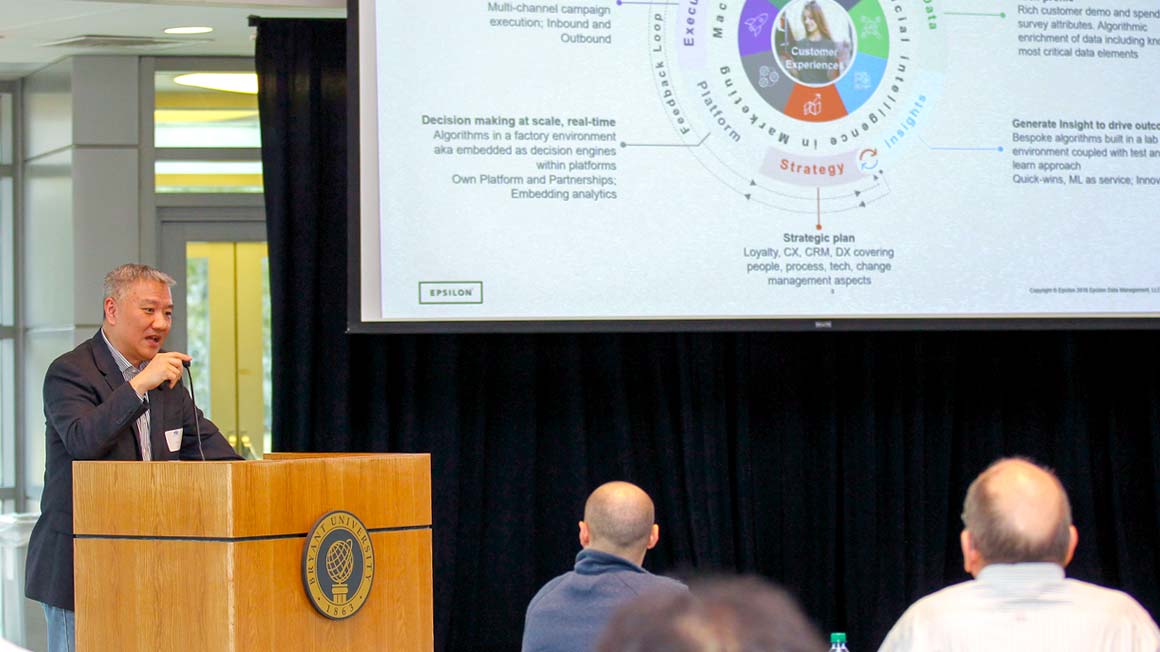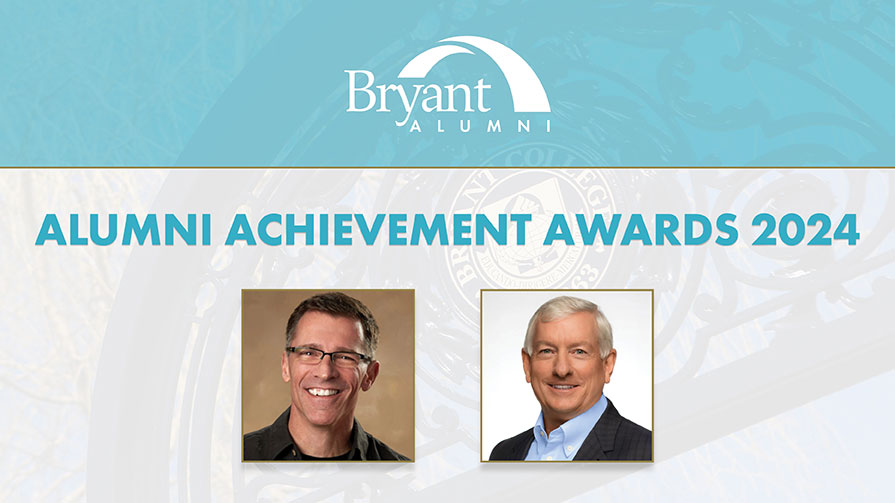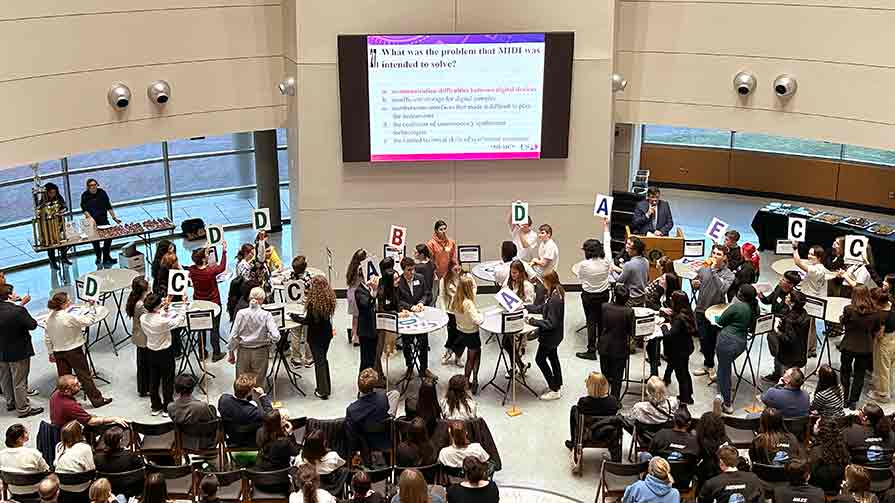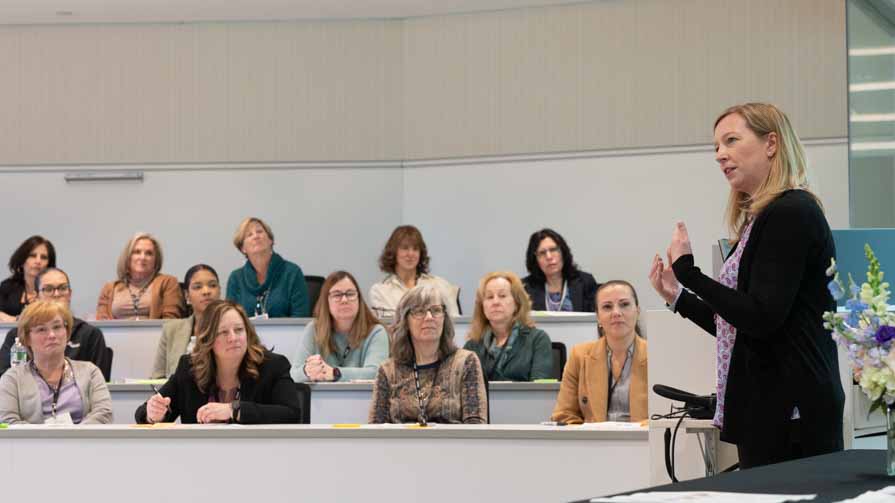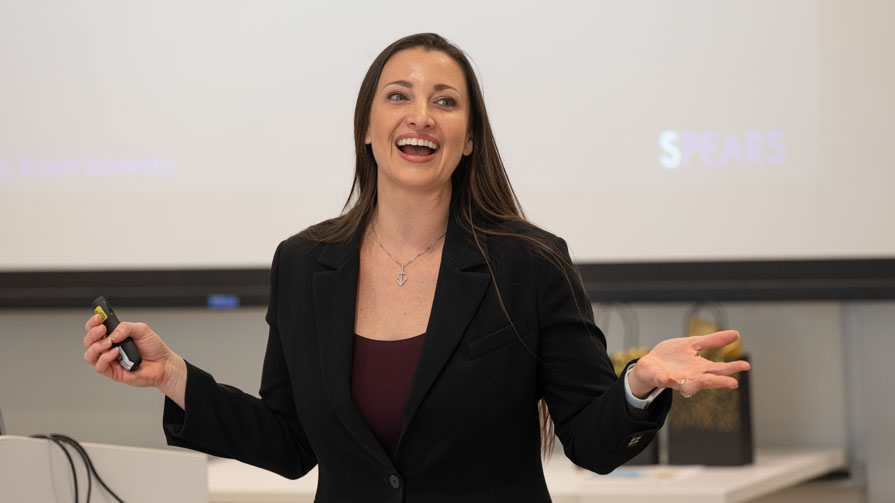SMITHFIELD, RI - At the fourth annual Analytics without Borders conference hosted by Bryant University on March 29, faculty, students, and industry professionals from around the region gathered to examine the future of emerging technologies, including AI, machine learning, predictive analytics, and blockchain. The purpose of the annual forum is to help train the next generation of data scientists.
“This conference is unique because of the breadth of topics that are covered. There was something here for everyone.”
“This conference is unique because of the breadth of topics that are covered. There was something here for everyone,” says Information Systems and Analytics Assistant Professor Kevin Mentzer, Ph.D., lead organizer of this year's event alongside Data Science Executive in Residence John Young and Information Systems and Analytics Professor Alan Olinsky, Ph.D. “If you walked around the various sessions, you got a sense of the different communities coming together that maybe wouldn’t have had the opportunity before.”
“The fact that you are here means you will be positioning yourself for the kinds of changes that are coming to the economy and the workforce,” added Associate Dean Daniel Ames. “This is an exciting area to be in.”
Expertise from the industry
Keynote speakers and breakout presentations were led by students, faculty, and industry leaders. This year’s event featured two powerhouse keynote speakers: Bill Wellman, M.S., Healthcare Executive/entrepreneur, and Harvard Adjunct Faculty member; and John Lin, Senior Vice President and Lead Analytic Sciences Practice at Epsilon Data Management.
“Blockchain brings trust to the table. The technology allows something that is digital to exist in one place and utilizes mathematics to enforce that it remains there in that one place. That is transformation.” - Bill Wellman, Healthcare Executive/entrepreneur, Harvard Adjunct Faculty member
Wellman provided an overview of the economic transformation of the previous Industrial Revolutions and shared his belief that blockchain technologies will have the greatest intersection with the Fourth Industrial Revolution.
“Blockchain brings trust to the table,” Wellman said. “The technology allows something that is digital to exist in one place and utilizes mathematics to enforce that it remains there in that one place. That is transformation.”
Lin discussed the importance of machine learning and AI, sharing examples of how practitioners are using these tools to provide data-driven solutions and transform business processes and outcomes.
“If you have the right skillset, your job will not be replaced by these technologies. If anything, it will make our jobs more and more credible. We’re the ones developing the algorithms, we’re the ones who understand the business." - John Lin, Senior Vice President and Lead Analytic Sciences Practice, Epsilon Data Management
Responding to the question if machine learning and AI will replace human jobs, Lin said, “If you have the right skillset, your job will not be replaced by these technologies. If anything, it will make our jobs more and more credible. We’re the ones developing the algorithms, we’re the ones who understand the business.” The technology can’t do that.
Training the next generation of data scientists
Ensuring both students and professionals are up-to-date in the latest tools used in the field, the event offered hands-on tutorials in Python, R, SQL, and Tableau. “This isn’t a one-time learning experience, it’s an ongoing learning process,” said Lin. As technology develops, new skills will need to be continuously learned and prior skills updated.
Suhong Li, Ph.D., who chairs the Department of Information Systems and Analytics, led a breakout session titled Blockchain Technology: Insights from Twitter Analytics, where she shared emerging topics and themes in blockchain, such as cryptocurrency.
Analytics without Borders was also an opportunity for students to practice presenting their own work. Bryant Seniors Shannon Downey and Kevin Sullivan gave a tutorial on Tweet mining using Google’s Colaboratory.
Co-sponsored by Bryant University, Tufts University, and Bentley University, Analytics without Borders will be held next year at Tufts University in late February 2020.
